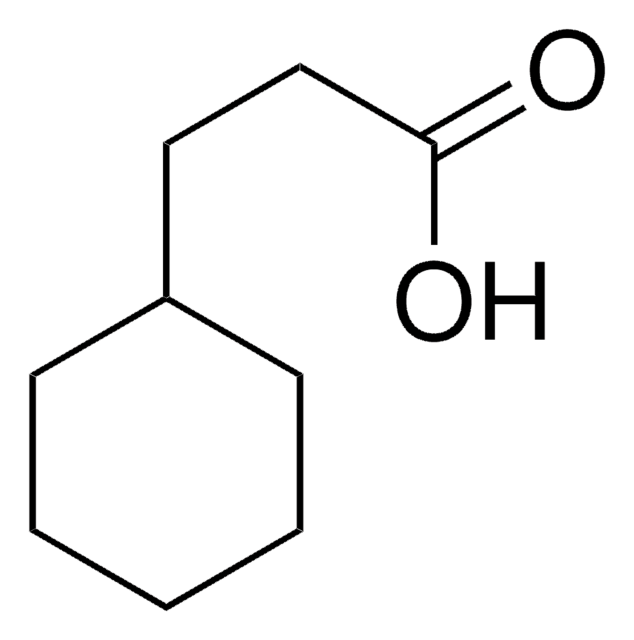538701
2-Ethylhexanoic acid
≥99%
Synonym(s):
2-Ethylcaproic acid
About This Item
Recommended Products
vapor density
4.98 (vs air)
Quality Level
vapor pressure
<0.01 mmHg ( 20 °C)
10 mmHg ( 115 °C)
Assay
≥99%
autoignition temp.
699 °F
expl. lim.
1.04 %, 135 °F
8.64 %, 188 °F
refractive index
n20/D 1.425 (lit.)
bp
228 °C (lit.)
density
0.903 g/mL at 25 °C (lit.)
functional group
carboxylic acid
SMILES string
CCCCC(CC)C(O)=O
InChI
1S/C8H16O2/c1-3-5-6-7(4-2)8(9)10/h7H,3-6H2,1-2H3,(H,9,10)
InChI key
OBETXYAYXDNJHR-UHFFFAOYSA-N
Looking for similar products? Visit Product Comparison Guide
Related Categories
General description
It has various industrial applications, such as:
- coolant in automotives
- synthetic lubricant
- wetting agent
- co-solvent
- drying of paints
- defoaming agent in pesticides
Application
- A review of the environmental fate and aquatic effects of a series of C4 and C8 oxo-process chemicals.: This review assesses the environmental impact of C4 and C8 oxo-process chemicals, including 2-Ethylhexanoic acid, detailing their degradation, persistence, and effects on aquatic ecosystems (Staples, 2001).
Signal Word
Danger
Hazard Statements
Precautionary Statements
Hazard Classifications
Repr. 1B
Storage Class Code
6.1C - Combustible acute toxic Cat.3 / toxic compounds or compounds which causing chronic effects
WGK
WGK 1
Flash Point(F)
237.2 °F - closed cup
Flash Point(C)
114 °C - closed cup
Personal Protective Equipment
Choose from one of the most recent versions:
Already Own This Product?
Find documentation for the products that you have recently purchased in the Document Library.
Customers Also Viewed
Our team of scientists has experience in all areas of research including Life Science, Material Science, Chemical Synthesis, Chromatography, Analytical and many others.
Contact Technical Service










